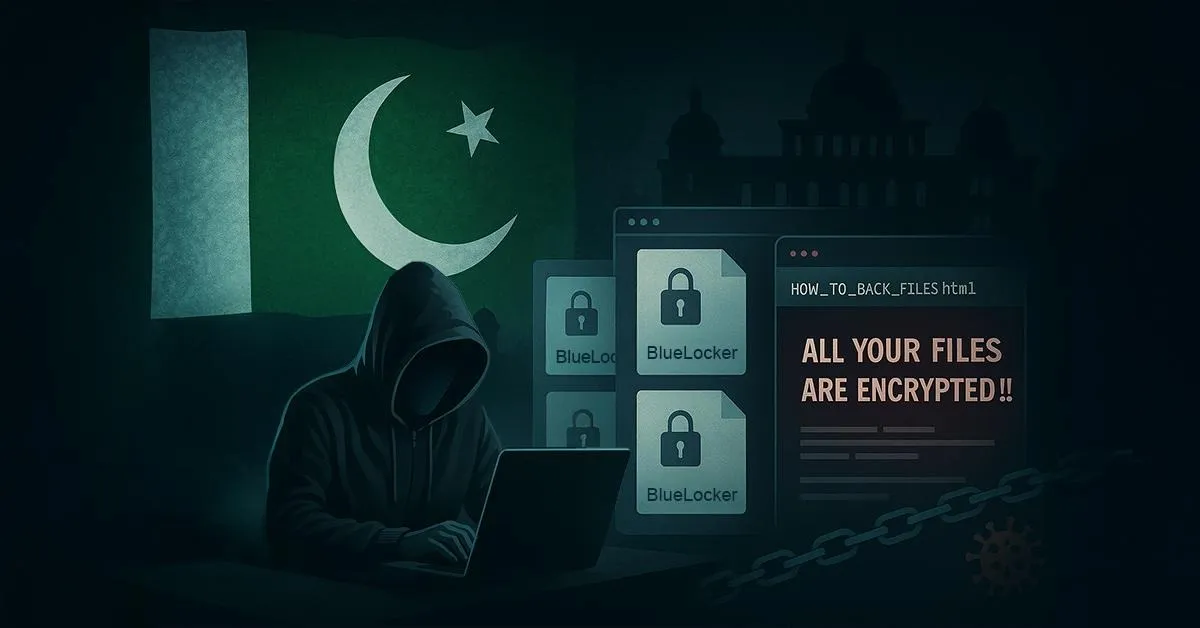Pakistan is facing an unprecedented wave of cyberattacks, prompting its National Cyber Emergency Response Team (NCERT) and other authorities to issue urgent cybersecurity advisories to government ministries, businesses, and individuals. The recent surge in attacks coincides with the period around Independence Day, a time of heightened online activity and potentially vulnerable digital infrastructure. Security experts report that hackers have intensified their efforts, targeting critical national institutions, including state-owned companies such as Pakistan Petroleum Limited (PPL), ministries, and key infrastructure organizations.
The notorious “Blue Locker” ransomware is at the center of the current threat, with attackers encrypting sensitive data, demanding ransom payments, and threatening to publish stolen information if demands are not met. The ransomware typically spreads through trojanized downloads, phishing emails, unsafe file-sharing platforms, and compromised websites. Victim files get appended with a “.blue” extension, and efforts to recover data independently risk permanent data loss. Beyond direct ransomware threats, cybercriminals are also leveraging phishing schemes, fake websites, and malware-laden downloads to steal credentials, disrupt operations, and inflict reputational and financial harm.
These intensified attacks have already paralyzed IT systems and financial operations of essential service providers, with cybersecurity teams struggling to restore affected systems and contain the scope of the damage. NCERT and other agencies recommend immediate actions for all organizations and users: updating devices and servers with the latest security patches, enabling multi factor authentication, strengthening email filtering, keeping offline backups, and continuously monitoring for unusual activity. The alert urges everyone to remain vigilant, promptly report incidents, and avoid interacting with suspicious emails, websites, or unknown software downloads.
Cybersecurity experts warn that limited resources, lack of structured policies, and insufficient staff training at many government departments and private institutions make Pakistan particularly susceptible to sophisticated cyber threats. The latest wave of attacks highlights the urgent need for investment in robust digital defense systems and ongoing education around cyber hygiene at all levels.









Leave a comment